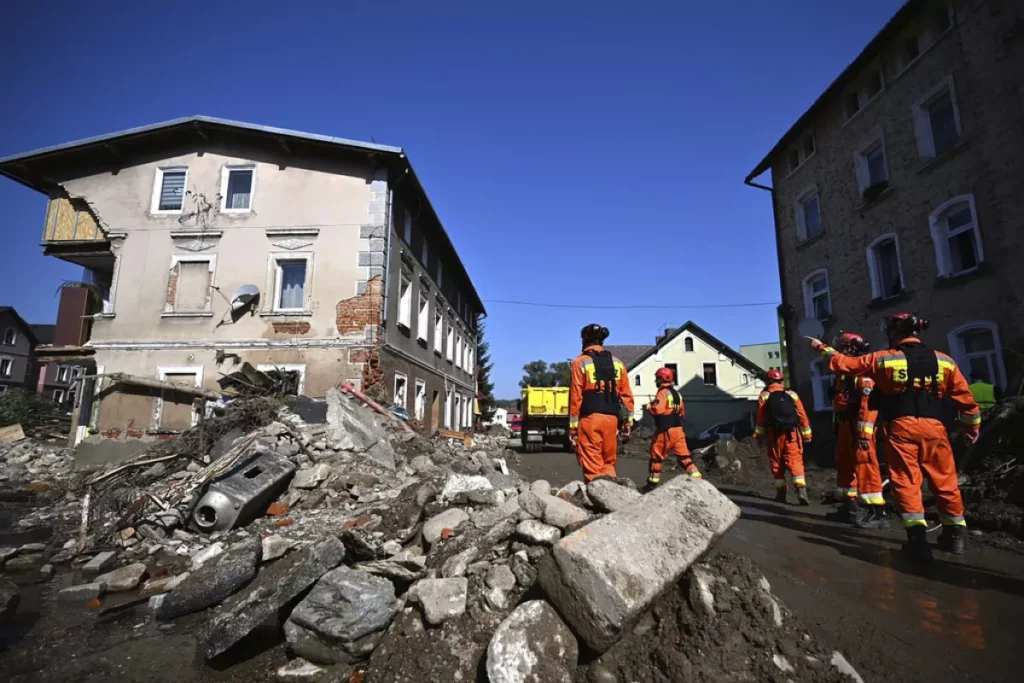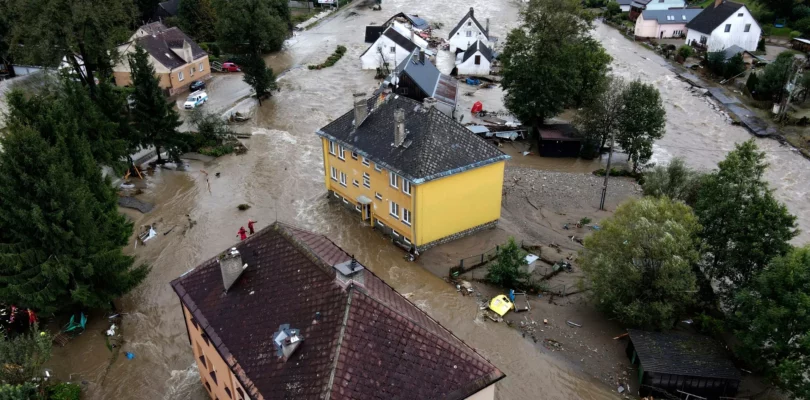In September 2024, Central Europe experienced severe flooding, particularly affecting Poland and Czechia. The floods were triggered by a storm named Boris, which brought torrential rains and high winds to the region. This extreme weather event led to rivers overflowing, causing widespread inundation.
Extensive Damage and Displacement
The floods caused significant damage to infrastructure, homes, and agricultural lands. In Poland, several towns were submerged, leading to the evacuation of thousands of residents. Czechia faced similar challenges, with many areas experiencing power outages and transportation disruptions. The economic impact is estimated to be in the billions, with long-term recovery efforts required to rebuild the affected regions.

Causes of the Floods
The primary cause of the floods was the intense rainfall brought by the storm. Additionally, the strong winds exacerbated the situation by causing further damage and hindering rescue operations. Climate change played a crucial role in this disaster, as it has increased the frequency and intensity of such extreme weather events. Studies indicate that climate change made the heavy rains twice as likely and up to 20% more intense.
Future Risks
Given the current trends in climate change, it is likely that Central Europe will face similar extreme weather events in the future. The increasing global temperatures and changing weather patterns contribute to the likelihood of more frequent and severe floods. It is essential for governments and communities to invest in better infrastructure, early warning systems, and sustainable practices to mitigate the impact of future floods.
